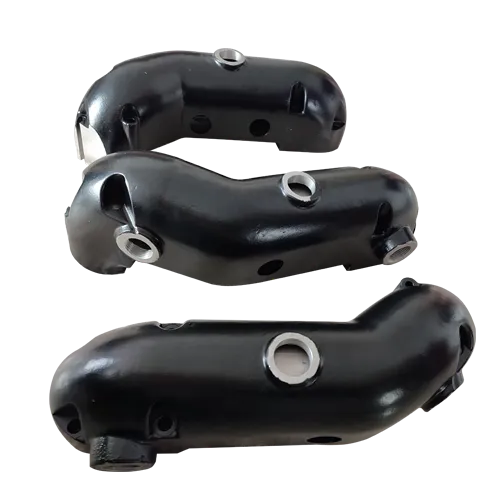Mobile:+86-311-808-126-83
Email:info@ydcastings.com
aluminium alloy for casting
Aluminium alloys for casting have become an essential aspect of modern manufacturing, thanks to their unique combination of properties such as lightweight, high strength, good corrosion resistance, and excellent thermal and electrical conductivity. These alloys are primarily used in various industries, including automotive, aerospace, electronics, and consumer goods, where performance and reliability are critical.
.
One of the most popular aluminium casting alloys is Al-Si (silicon) alloy, known for its fluidity, low thermal expansion, and minimal shrinkage during solidification. This makes it an excellent choice for complex shapes and intricate designs. Al-Si alloys are commonly used in die casting processes and are widely utilized in the automotive industry for engine components, transmission housings, and decorative trims.
aluminium alloy for casting

Another significant category is Al-Cu (copper) alloys, which are appreciated for their high strength and good machinability. They are typically used in high-performance applications, such as aerospace components, where strength and weight savings are paramount. However, Al-Cu alloys may be more susceptible to corrosion, requiring protective coatings or treatments to enhance their durability.
The casting process itself can significantly impact the properties of the final product. Techniques such as sand casting, die casting, and investment casting allow manufacturers to create intricate shapes with minimal waste. These methods also facilitate rapid prototyping and production, contributing to the efficient and cost-effective manufacture of aluminium components.
Overall, the use of aluminium alloys for casting continues to grow in popularity, driven by advancements in material science and manufacturing technologies. As industries seek lighter, stronger, and more efficient materials, aluminium alloys are poised to play a pivotal role in shaping the future of engineered products. With their versatility and performance capabilities, aluminium casting alloys will remain indispensable in diverse applications for years to come.
-
Why Should You Invest in Superior Pump Castings for Your Equipment?NewsJun.09,2025
-
Unlock Performance Potential with Stainless Impellers and Aluminum End CapsNewsJun.09,2025
-
Revolutionize Your Machinery with Superior Cast Iron and Aluminum ComponentsNewsJun.09,2025
-
Revolutionize Fluid Dynamics with Premium Pump ComponentsNewsJun.09,2025
-
Optimizing Industrial Systems with Essential Valve ComponentsNewsJun.09,2025
-
Elevate Grid Efficiency with High-Precision Power CastingsNewsJun.09,2025











